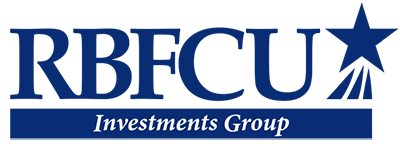Retirement Costs: Stop Guessing and Start Planning
In a perfect scenario, retirement would be a time to relax, enjoy life and reap the rewards of hard work. Yet the financial challenges you may encounter during your golden years have the potential to interrupt that chill vibe.

Fortunately, by working now to prepare for what’s ahead, you may be able to reduce the risk or impact of the "hidden" costs of aging years or decades before you hit 65.
From health care costs to long-term care and life insurance considerations, let’s explore common steps and strategies that may help take the guesswork out of your retirement planning.
Assess your current income and budget
It’s a simple but powerful first step. By determining now how much money you’ll need to set aside to maintain your current standard of living during retirement – a number known as an income replacement ratio1 – you’ll be better positioned to develop a strategy to advance your unique goals.
The first step is to collect your major financial documents (e.g., account statements, mortgage loan payment schedule, recent credit card bills) and determine your projected assets and liabilities.
Now, with these insights as a starting point, you can work to incorporate other unique financial details as you advance toward establishing an anticipated retirement budget.
Define your “golden year” goals
Ready for what’s next? Think carefully about what you want to achieve late in life and the type of retirement lifestyle you want to fund:
- Will you downsize, stay where you are or seek travel and adventure?
- Do you want to spend time volunteering or are you interested in working part-time?
- Will you stay where you are or move to another community, state or country?
Furthermore, by estimating the number of years that you expect to spend in retirement, you may be better prepared to calculate how much money you’ll need to cover several years of your life. According to the U.S. Department of Labor,2 an average American lives as a retiree for approximately 20 years.
Review your projected retirement income vs. expenses
With a clearer idea of what you want to do in retirement and how much money you’ll need to maintain your lifestyle, we move to the trickier part: determining how you’ll fund it all.
Remember: Retirement means you’re not only stepping away from work but also a regular paycheck.
Have you ever taken a close look at what will comprise your retirement income? Common elements include (but may not be limited to):
- Social Security Retirement benefits
- Pension plans
- Employer-sponsored savings like 401(k)s
- Personal savings and investment accounts
You likely receive regular notices about your savings and investment account balances. By reviewing them carefully, either on your own or with a financial advisor, you can better see if there’s a need to actively address the gap between where you think you might be financially at retirement and where you want to be.
»Tip: Did you know that it takes only a few moments to get an estimate of your Social Security Retirement benefits?3 For many people – especially young professionals and parents with young kids – this is an eye-opening exercise, one that highlights the need to prepare for the future. (Yes, retirement budget "sticker shock" is possible when reviewing projected benefits, but it can also be a great motivator to develop and act on a custom financial plan!)
Account for health care costs
Health care expenses are a significant concern at every life stage but especially during retirement years when health may decline rapidly.
That’s because health care during retirement is about more than just meeting basic needs. It’s important to factor in potential medical emergencies and future health challenges.
For instance, you might need long-term care if you were to become physically or mentally incapacitated – even if only for a few weeks. To help prepare for the possibility and the drain it can have on your finances and net worth, you might want to consider adding long-term care insurance to your retirement plan.
»Tip: Are you currently nearing retirement age now? If so, then you’ll want to carefully research health care options, including Medicare health insurance,4 for which most people first become eligible at 65.
Additional factors and strategies to consider
Just as with your career path, every journey through retirement is unique. There are some basic strategies that can help you preserve your financial future.
Keep an eye on debt and grow money when you can
Prioritize paying off outstanding debts before retirement and avoid accumulating new debt as you approach retirement.
Resist the urge to overindulge financially
In addition to keeping an eye on debt, it can be wise to practice living beneath your financial means.
For instance, is a new car necessary every couple of years? Or might you be able to put aside the extra money you’d spend on a higher monthly payment to fund your retirement? Might you want to purchase a slightly smaller home than the one for which you qualify today so that, in the future, you could have more money in the bank?
Create and maintain an emergency fund
An emergency fund is a solid idea at every life stage, but it can become critical as you age. Consider creating an emergency fund in retirement to cover unexpected expenses like home and car repairs. This can help you prevent the need to dip into funds earmarked for your retirement.
Review your plans regularly and adjust as needed
To keep your retirement goals on track, it’s wise to regularly review and adjust your financial plans. Be sure to keep an eye on investment performance and stay informed about changes in tax laws, Social Security Retirement benefits and health care policies that may impact your goals.
Remember: Inflation, stock market changes and economic shifts can play a role in a dollar’s value today versus tomorrow. Fortunately, with proper planning, you may be able to prepare for those contingencies, too!
The takeaway
When it comes to retirement planning, you can move past guesswork to craft your financial future with more confidence. Indeed, a well-structured retirement plan may help you achieve the retirement of your dreams.
Curious to learn about strategies and solutions that can help you advance your retirement goals? Whether retirement is decades away or just around the bend, we invite you to take your next step toward building a retirement plan with us!



.jpg?sfvrsn=3411b3a8_4)
